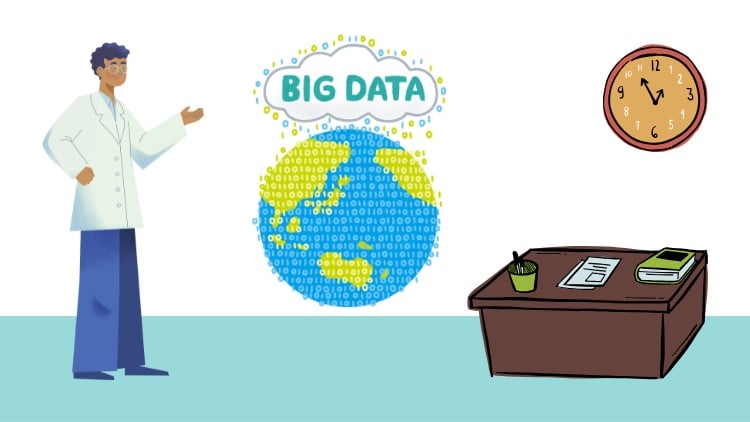
Master Data Science with Python, SQL, R, and Machine Learning through practice tests.
⭐ 3.67/5 rating
👥 1,587 students
🔄 June 2025 update
Add-On Information:
Note➛ Make sure your 𝐔𝐝𝐞𝐦𝐲 cart has only this course you're going to enroll it now, Remove all other courses from the 𝐔𝐝𝐞𝐦𝐲 cart before Enrolling!
- Course Overview
- This ‘Certified Professional Data Science through Practice Test’ program offers an intensive, certification-focused pathway for aspiring data scientists.
- It uniquely emphasizes a rigorous practice test methodology for deep conceptual understanding and practical application.
- The curriculum comprehensively integrates Python, SQL, R, and extensive Machine Learning concepts.
- Learners gain hands-on expertise in navigating the entire data science project lifecycle.
- Content is updated for June 2025, ensuring alignment with the latest industry trends and technologies.
- Requirements / Prerequisites
- Fundamental Analytical Thinking: A problem-solving and logical mindset is highly beneficial.
- Basic Computer Literacy: Familiarity with general computer operation and file management.
- High School Level Math: Basic understanding of algebra and statistics is advantageous, with core concepts reviewed.
- No Prior Programming Required: The course introduces Python, SQL, and R from foundational concepts.
- Dedicated Effort: Consistent engagement and self-discipline are crucial for mastering the practice-test driven material.
- Skills Covered / Tools Used
- Python Proficiency: Core programming, data structures, control flow, functions, and object-oriented principles.
- SQL Data Mastery: Advanced querying, joins, aggregations, subqueries, and DDL/DML operations for database management.
- R for Analytics: Data manipulation, robust statistical modeling, and sophisticated visualization with ggplot2.
- Data Preprocessing: Handling missing data, outliers, data transformations, and feature engineering using Pandas and NumPy.
- Exploratory Data Analysis (EDA): Visualizing data distributions, relationships, and patterns via Matplotlib and Seaborn.
- Statistical Inference: Comprehensive understanding and application of hypothesis testing, confidence intervals, regression, and ANOVA.
- Supervised Machine Learning: Implementing and evaluating Linear Regression, Logistic Regression, Decision Trees, Random Forests, and Support Vector Machines (SVM).
- Unsupervised Machine Learning: Practical application of clustering algorithms like K-Means, hierarchical clustering, and dimensionality reduction (PCA).
- Model Evaluation: Mastery of metrics such as accuracy, precision, recall, F1-score, ROC curves, and cross-validation techniques for robust model assessment.
- NLP Fundamentals: Introduction to text preprocessing, sentiment analysis, and basic text classification using libraries like NLTK or SpaCy.
- Version Control: Effective collaboration and code management using Git and understanding GitHub principles for project organization.
- Cloud Concepts: Conceptual understanding of major cloud platforms for data storage and compute resources (e.g., AWS S3/EC2, Google Cloud, Azure).
- Benefits / Outcomes
- Official Certification: Earn a professional certification validating your comprehensive data science skills.
- Career Readiness: Gain a competitive edge for roles like Data Scientist, Data Analyst, or Machine Learning Engineer.
- Strong Portfolio: Develop a compelling portfolio showcasing numerous practice-based projects and problem solutions.
- Interview Preparedness: Master technical concepts and practical application for confident job interviews.
- End-to-End Project Skills: Confidently manage data science projects from problem definition to model deployment and interpretation.
- Multi-Tool Proficiency: Become proficient in Python, SQL, and R, significantly boosting your marketability and adaptability.
- Enhanced Problem-Solving: Sharpen analytical and critical thinking skills through challenging, real-world data problems.
- Foundation for Growth: Establish a robust base for advanced specialization and continuous learning in various data science domains.
- PROS
- High Practicality: Extensive practice tests ensure hands-on skill development, deep learning, and practical application.
- Broad Coverage: Comprehensive curriculum spanning Python, SQL, R, and diverse Machine Learning techniques, making graduates versatile.
- Industry Relevance: Directly aligns with professional job requirements, bolstered by a significant June 2025 update.
- Certification Value: Provides a credible professional certification, enhancing your resume and career advancement prospects.
- CONS
- Demands Self-Discipline: The intensive practice-test format requires consistent effort and self-motivation for optimal results and mastery.
Learning Tracks: English,Development,Data Science
Found It Free? Share It Fast!